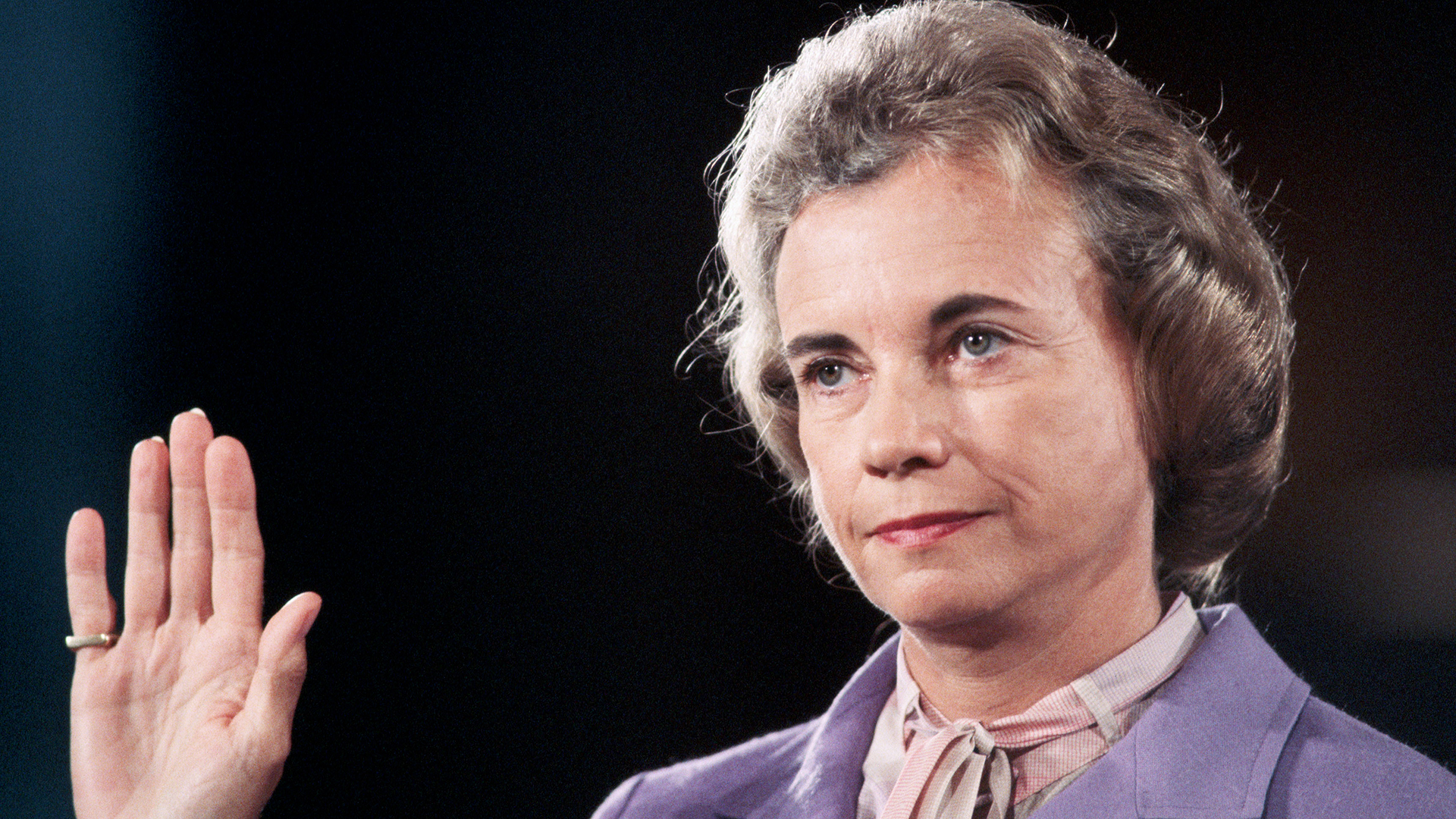
She enrolled at Stanford University at age 16 and graduated from Stanford Law School at age 22.
She finished third in her law school class, two spots behind a future chief justice of the United States, William Rehnquist.
And for all that, no private law firm would hire her at graduation because she was a woman. One offered to take her on as a secretary. She declined.
Sandra Day O’Connor is most famous for breaking the gender barrier at the Supreme Court that stood for 192 years. She was nominated by President Reagan in 1981, confirmed by the Senate the same year, and served until her retirement in early 2006.
In 2018, Justice O’Connor announced her retirement from public life after disclosing that she had been diagnosed with the early stages of Alzheimer’s-like dementia. She is now 91.
In 2009, she was awarded the Presidential Medal of Freedom by President Barack Obama. In November 2021, the NJC announced its establishment of the Sandra Day O’Connor Award for outstanding contributions to justice.
Seven years before her ascension to the Supreme Court, Justice O’Connor was a prominent state legislator, the majority leader of Republicans in the Arizona Senate. In fact, she was the first woman to serve as a majority leader in any state. She believed in equal rights for women and reportedly made an inventory of Arizona laws that discriminated against women. Over time these were all changed or repealed.
In 1974 she decided not to run for re-election to the Senate. Instead, she ran for judge in a newly recreated division of the Maricopa County (Arizona) Superior Court. And won.
Her next stop was The National Judicial College, where she enrolled in the College’s flagship General Jurisdiction course for new judges. She became a lifelong supporter of the College.
Within four years of her election to Superior Court, she was promoted to the Arizona Court of Appeals by Governor Bruce Babbitt, a Democrat.
Two years later she received a call from then U.S. Attorney General William French Smith, who, coincidentally had been a partner at the law firm that offered her the secretary job 30 years earlier.
According to Evan Thomas, author of the 2019 biography “First: Sandra Day O’Connor, an Intimate Portrait of the First Woman Supreme Court Justice,” the Arizona appellate judge quipped, “You wouldn’t be calling me about secretarial work, would you?”
Sandra Day O’Connor grew up on a remote 160,000-acre cattle ranch in Arizona. In a lighthearted interview on Comedy Central’s “The Daily Show” after she’d retired, she told host Jon Stewart modestly, “I was a just a cowgirl and they don’t have too many of those down in D.C.”
In her years on the court she established a reputation as a pragmatist rather than someone bound by ideology. Like Justice Anthony Kennedy, she was seen as a swing vote. She bristled at that term, but it was true. She was the deciding vote on more than 300 cases.
She sometimes disappointed conservatives by joining more liberal justices in the majority on issues such as reproductive freedom (most notably Planned Parenthood of Southeastern Pennsylvania v. Casey, which upheld Roe v. Wade with additional restrictions), affirmative action, election district gerrymandering, and the separation of church and state. She cast the decisive vote in Bush v. Gore, which ended the Florida recount in 1980 and gave the presidency to George W. Bush.
“She believed in making law slowly, case by case, almost inch by inch, on big controversial cases on issues like abortion and affirmative action,” biographer Evan Thomas told The Palm Beach Post in 2020.
For her, the Supreme Court was not the final word, he said. Rather, she regarded it as being “in conversation with other branches of government.”
Justice O’Connor has devoted much of her retirement to promoting civics education and civil discourse. In 2009 she founded the video-game-based iCivics program to ensure that Americans understand their rights and responsibilities as citizens in a democracy. The nonprofit organization provides free, nonpartisan resources to more than 7.6 million middle school and high school students annually in all 50 states.

CHICAGO – The American Bar Association Judicial Division announced recently that TheNational Ju...

The National Judicial College is mourning the loss of former faculty member Judge Duane Harves, who passed ...

As the world manages an evolving natural environment, The National Judicial College announced today that it...

Do’s Manage your cases systematically Devise a system that works for you and your organizational...

After 22 years of teaching judges, Tennessee Senior Judge Don Ash will retire as a regular faculty member a...